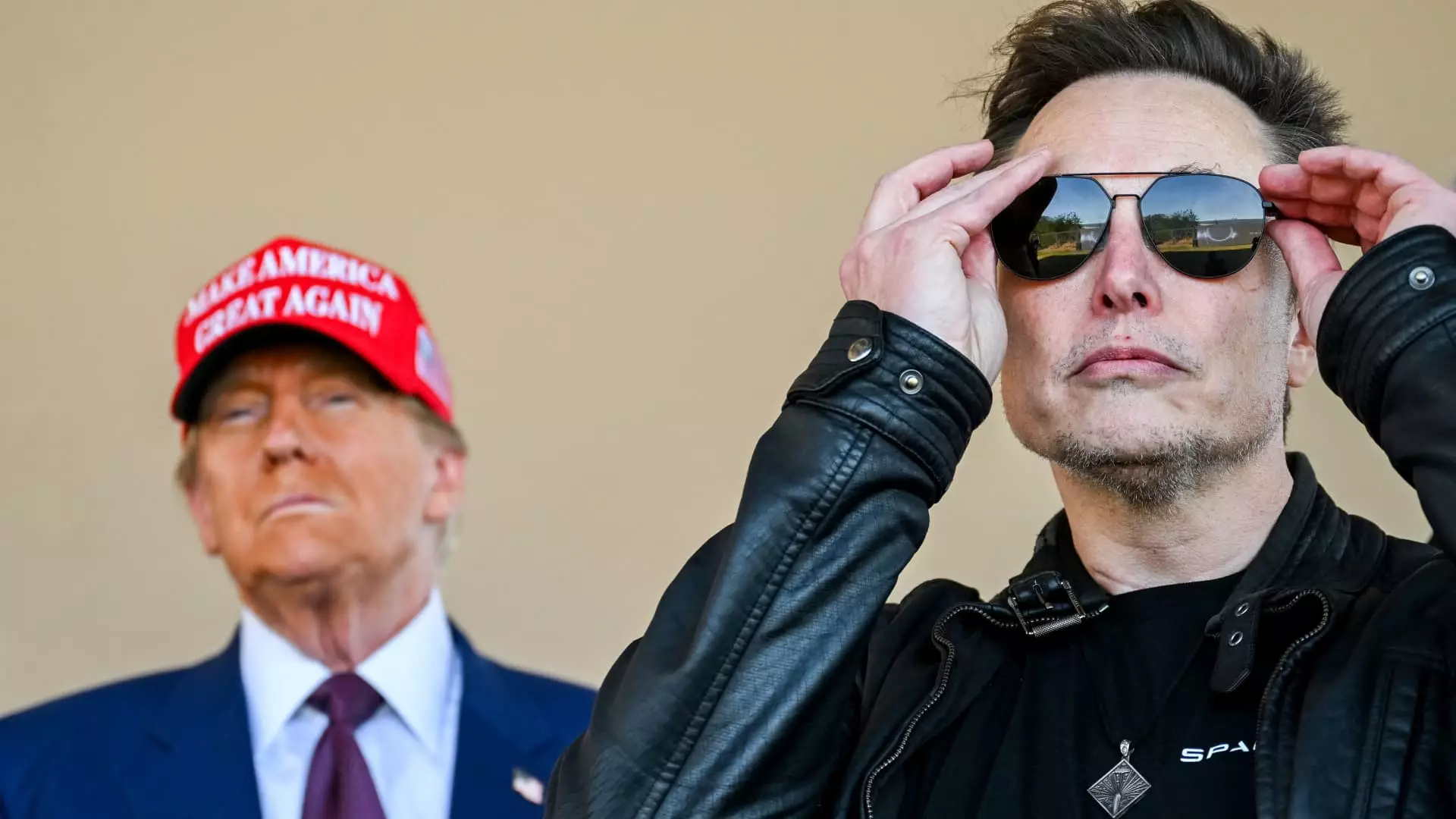In the ever-changing landscape of American politics, few figures are as polarizing and consequential as Elon Musk. As Congress navigates the fallout from a narrowly avoided government shutdown, the magnate’s sway over political discourse has come under heightened scrutiny. Particularly, the relationship between Musk and President-elect Donald Trump has become a point of contention among Democratic lawmakers. Their concerns highlight a deeper issue regarding the intersection of wealth, technology, and political power.
The Averted Shutdown: A Reflection of Political Influence
Recently, Congress managed to avert a government shutdown, but not without drama and conflict. A bipartisan funding bill, designed to provide financial support beyond the impending deadline, was ultimately scrapped in part due to Musk’s vocal opposition on social media. The implications of this situation reveal how a single individual’s commentary can disrupt legislative processes, prompting questions about accountability and the motives driving such interferences.
Musk, with his staggering following of over 208 million users on X (formerly Twitter), used his platform to express vehement disapproval of the funding legislation. His sentiments culminated in a post that warned any politician endorsing the bill would risk losing their position come the next election cycle. This ability to influence public sentiment raises alarms about the level of corporate allegiance that some lawmakers are willing to entertain, particularly when juxtaposed against public opinion.
The reactions from lawmakers on both sides of the aisle reveal a dichotomy that underscores a growing discontent. Democrats, such as Representatives Jim McGovern and Rosa DeLauro, criticized their Republican colleagues for yielding to Musk’s influence. They suggested that his motivations might be tied to nurturing profitable ties with foreign powers, especially China. This line of thinking posits Musk not just as a private citizen but as a quasi-political entity—a notion that seems to resonate deeply with aspects of democratic governance that depend on accountability and transparency.
Conversely, some Republican leaders, like Senator Bill Hagerty, defended Musk’s actions. Hagerty characterized Musk’s comments as a crucial catalyst for transparency, arguing that without Musk’s intervention, essential information about the legislation would have remained under wraps. Such statements reflect a broader acceptance among certain political factions of the idea that billionaires, like Musk, may possess insights or foresight that translate into political capital. This acceptance does beg the question: Who truly holds power in Washington?
The rapid rise of Musk’s influence has led to some eye-rolling caricatures, the most notable being the label of “President Musk.” This mocking title reflects a growing concern among Democrats regarding Musk’s perceived ability to set the legislative agenda. Even some Republican legislators are beginning to acknowledge the peculiar situation, with Congressman Tony Gonzales noting that Musk reflects public sentiment in a way that traditional politicians do not. This raises critical questions about the erosion of political authority and the shifting power dynamics in governance.
As the conversation continues, it seems clear that many lawmakers interpret Musk’s engagement as destabilizing. Democratic Senator Chris Coons warned that with both Trump and Musk capable of considerable influence, the U.S. political landscape might face severe instability, particularly as Congress prepares to re-enter negotiations in the coming months. This collaboration—or perhaps collusion—between tech magnates and political figures is uncharted territory, one that could fundamentally change the way policy is crafted and communicated to the public.
Amidst this tumult, the need for unity among lawmakers has never been more pressing. The fraught political environment, compounded by the whims of social media’s most prominent figures, presents myriad challenges for effective governance. The path forward mandates a concerted effort to distill essential policy debates from the noise generated by influencers like Musk, who can, at times, overshadow the democratic process.
While the power struggles within Congress and the external influence of tech entrepreneurs will undoubtedly continue, it’s crucial for lawmakers to cultivate a more robust framework for legislative dialogue. Engaging with constituents and addressing their concerns, independent of billionaire influence, must become a priority to re-establish trust in the political mechanism.
The dynamic between powerful individuals like Elon Musk and elected officials reflects a troubling trend in modern governance. As the lines between private influence and public accountability blur, the essential task of steering the country effectively becomes ever more complex, necessitating a reevaluation of how power is wielded in American democracy.

